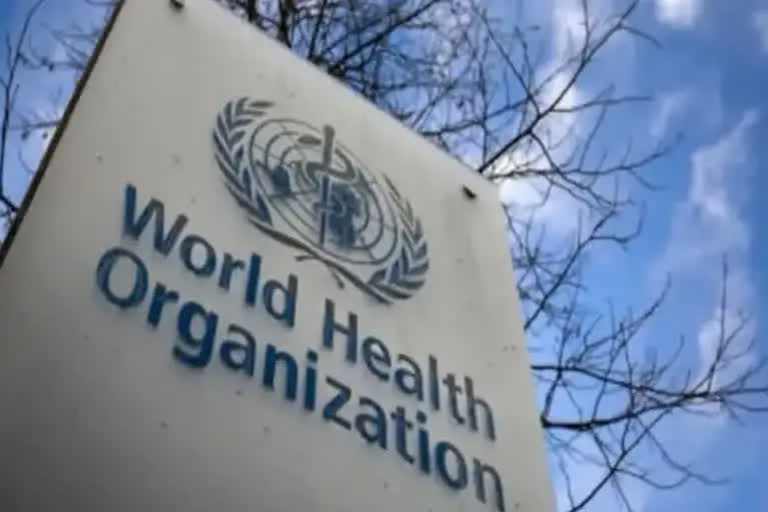New Delhi: The World Health Organisation on Thursday highlighted the urgent need to provide everyone equitable access to HIV prevention, treatment and care to end the AIDS epidemic as a public health threat by 2030. Globally, an estimated 38.4 million people are living with HIV. In 2021, an estimated 1.5 million people acquired HIV and around 6,50,000 people died from AIDS-related causes, said Dr Poonam Khetrapal Singh, WHO Regional Director for South-East Asia.
In the South-East Asia Region, an estimated 3.8 million people are living with HIV, accounting for around 10 per cent of the global burden, she said on World AIDS Day. In 2021, an estimated 82,000 people in the region died of AIDS-related causes, accounting for more than 12 per cent of the global burden, Singh said.
"The inequalities which keep the AIDS epidemic alive are not inevitable. Together, we must end each and every inequality and accelerate progress towards our targets and goals. On World AIDS Day, WHO reiterates its commitment to achieve a region and world in which AIDS is no longer a public health threat, leaving no individual, community or population behind," she said.
Amid the Covid response and recovery, the region continues to take targeted action to end HIV-related inequalities and expand service coverage in line with its priority on achieving universal health coverage and the region's new Integrated Action Plan for viral hepatitis, HIV and sexually transmitted infections (I-RAP 2022-2026), launched in September 2022, Singh said. Between 2010 and 2021, new HIV infections in the region declined by 42 per cent and HIV-related deaths reduced by 63 per cent.
Also read:World AIDS Day 2022 will be held to "Equalize"
"We have people and populations to reach, and progress to achieve. Across the region, almost 95 per cent of new HIV infections are among key populations such as sex workers, people who inject drugs, men who have sex with men, and transgender people," Singh said. The senior WHO official said just 22 per cent of young people have knowledge about HIV prevention, and coverage of testing for people who inject drugs has significant room for improvement.
Access to game-changing innovations such as HIV self-testing and pre-exposure prophylaxis remains highly uneven, both within and between countries, she said. Calling for action in several areas, WHO said policy makers and programme managers should rapidly increase the availability, quality and sustainability of HIV services, ensuring that everyone - especially key populations - are well-served and actively included in service provision, Singh said.
Second, political leaders and other key influencers should immediately reform laws, policies and practices that facilitate both direct and indirect discrimination, stigma and exclusion. The human rights of key populations and affected groups must be respected, protected and fulfilled, Singh added. Third, policy makers and other national, international and global actors must accelerate access for all countries and communities to the best HIV science, technologies and tools, which should be accompanied by evidence-based information on how best to deliver them, including through increased South-South collaboration and learning, she said.
Programme managers and other health leaders should implement concrete actions to engage and empower communities, civil society and affected populations, whose experiences must inform both policy and service delivery, as well as ongoing progress monitoring, she said. "The inequalities which keep the AIDS epidemic alive are not inevitable. Together, we must end each and every inequality and accelerate progress towards our targets and goals. "On World AIDS Day, WHO reiterates its commitment to achieve a Region and world in which AIDS is no longer a public health threat, leaving no individual, community or population behind," Khetrapal Singh said. (PTI)
(This story has not been edited by ETV Bharat and is auto-generated from a syndicated feed.)
